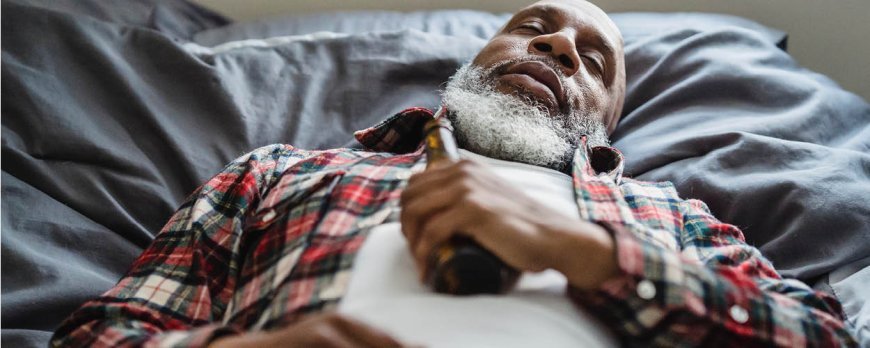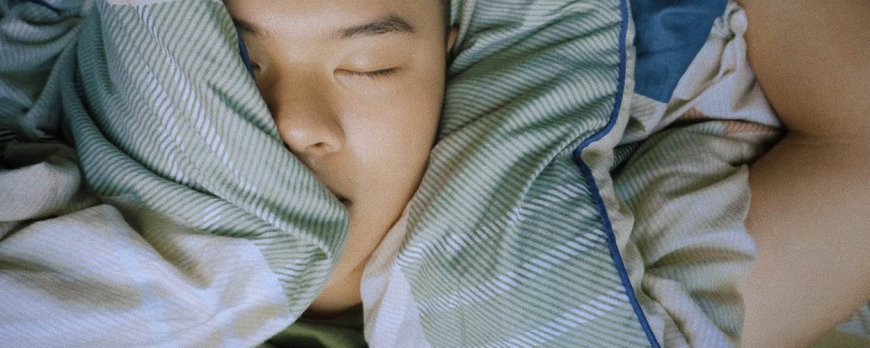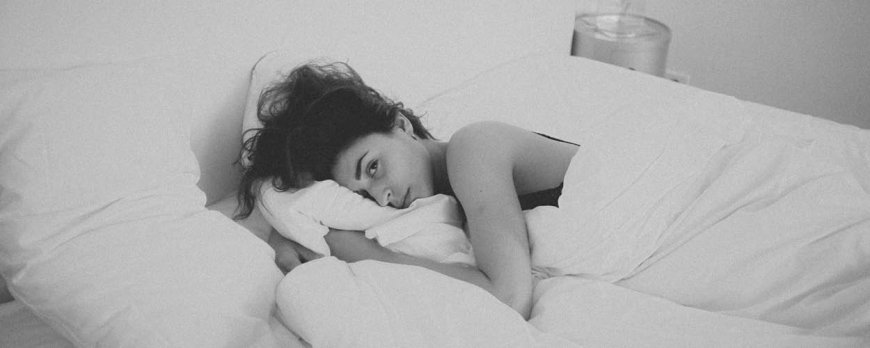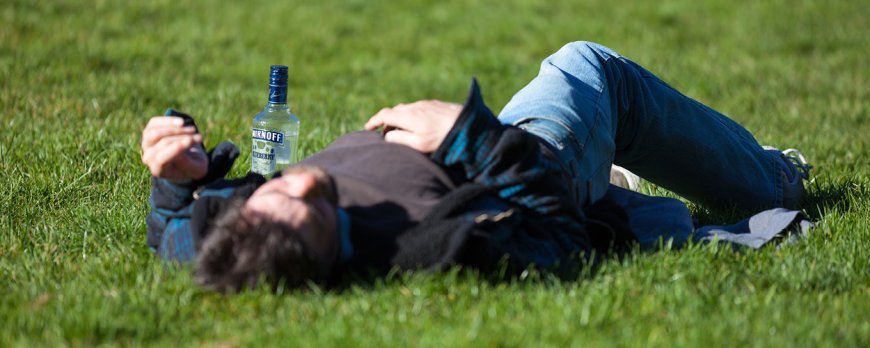Do alcoholics sleep a lot?
Explore the truth about the question 'Do alcoholics sleep a lot?', uncovering how alcohol affects sleep patterns and overall health. Discover the impacts now.

Do Alcoholics Sleep a Lot?
Many people wonder if alcoholics tend to sleep excessively. Research has shown that alcoholics commonly experience sleep problems, including difficulty falling asleep and decreased total sleep time. Sleep abnormalities can persist even after a person has been abstinent for a period of time. Alcoholics are also more likely to suffer from sleep disorders such as sleep apnea. Sleep problems may increase the risk of relapse among abstinent alcoholics. Daytime sleepiness has been found to be associated with decreased alcohol consumption and sleep duration. The relationship between alcohol consumption and sleepiness is complex and further research is needed to fully understand it.
Key Takeaways:
- Alcoholics often experience sleep problems, such as difficulty falling asleep and decreased total sleep time.
- Sleep abnormalities can persist even after a person has stopped drinking.
- Alcoholics are more prone to sleep disorders like sleep apnea.
- Sleep problems may increase the risk of relapse among abstinent alcoholics.
- Daytime sleepiness is associated with decreased alcohol consumption and sleep duration.
Sleep Patterns in Alcoholism
Alcohol abuse can significantly impact sleep patterns in individuals with alcoholism. Research has shown that alcoholics commonly experience sleep problems, including difficulty falling asleep and decreased total sleep time. These sleep abnormalities can persist even after a person has been abstinent for a period of time.
One of the main effects of alcohol on sleep is the disruption of REM (rapid eye movement) sleep. REM sleep is a crucial stage of sleep associated with dreaming and cognitive processing. Alcohol can suppress REM sleep, causing individuals to spend less time in this important sleep stage.
In addition to the disruption of REM sleep, alcohol abuse can also lead to issues such as fragmented sleep and increased wakefulness during the night. This can result in decreased total sleep time and poor sleep quality. These sleep disturbances can contribute to daytime fatigue, impaired cognitive function, and decreased overall well-being.
Furthermore, alcoholics are more likely to suffer from sleep disorders such as sleep apnea. Sleep apnea is a condition characterized by pauses in breathing during sleep, often accompanied by loud snoring. Alcohol can relax the muscles in the throat, increasing the likelihood of airway blockages and contributing to sleep apnea symptoms.

Summary:
- Alcohol abuse can impact sleep patterns in individuals with alcoholism.
- Common sleep problems in alcoholics include difficulty falling asleep and decreased total sleep time.
- Alcohol can disrupt REM sleep, leading to fragmented sleep and increased wakefulness during the night.
- Alcoholics are more likely to suffer from sleep disorders such as sleep apnea.
The relationship between alcohol and sleep is complex, and further research is needed to fully understand the mechanisms involved. However, it is clear that alcohol abuse can have a significant impact on sleep patterns in individuals with alcoholism. By addressing sleep disturbances and seeking appropriate treatment, individuals in recovery can improve their overall sleep quality and potentially reduce the risk of relapse.
Sleep Disorders in Alcoholism
Alcoholism is often associated with sleep disturbances and an increased risk of developing sleep disorders. Research has shown that individuals with alcohol use disorder commonly experience difficulties with sleep, including trouble falling asleep and a decrease in total sleep time. These sleep abnormalities can persist even after a person has been abstinent from alcohol for a period of time.
Furthermore, alcoholics are more likely to suffer from sleep disorders such as sleep apnea. Sleep apnea is a condition characterized by pauses in breathing during sleep, leading to fragmented sleep and daytime fatigue. The prevalence of sleep apnea is significantly higher among individuals with alcoholism compared to the general population.
Sleep Disturbances in Alcoholics
- Difficulty falling asleep
- Decreased total sleep time
- Frequent awakenings throughout the night
- Restless and disrupted sleep
In addition to sleep apnea, alcoholics may also experience other sleep disorders such as insomnia, characterized by difficulty falling asleep and staying asleep. Insomnia can further contribute to daytime sleepiness, fatigue, and impaired cognitive function.
While the exact mechanisms underlying the relationship between alcoholism and sleep disorders are not fully understood, it is clear that there is a complex interplay between alcohol use and disrupted sleep patterns. Further research is needed to better understand the underlying factors contributing to sleep disturbances in alcoholics and to develop effective interventions to address this issue.

Sleep Abnormalities in Abstinent Alcoholics
Even after achieving sobriety, individuals with alcoholism may experience ongoing sleep abnormalities. Research has shown that alcoholics commonly suffer from sleep problems, including difficulty falling asleep and decreased total sleep time. These sleep abnormalities can persist even after a person has been abstinent from alcohol for a period of time.
Alcoholics are also more likely to suffer from sleep disorders such as sleep apnea. Sleep apnea is a condition in which breathing is repeatedly interrupted during sleep, leading to fragmented sleep and excessive daytime sleepiness. This can further exacerbate the sleep problems already experienced by alcoholics.
Furthermore, sleep problems in abstinent alcoholics may have significant implications for their recovery. Studies have suggested that sleep disturbances may increase the risk of relapse among individuals who have stopped drinking. It is believed that disrupted sleep can contribute to cravings for alcohol and impair decision-making abilities, making it more challenging for individuals to stay sober.
Interestingly, research has also shown that daytime sleepiness is associated with decreased alcohol consumption and sleep duration. This suggests a complex relationship between alcohol consumption and sleep, where excessive alcohol intake may initially disrupt sleep, but decreased alcohol consumption can lead to increased daytime sleepiness. However, more research is needed to fully understand this relationship and its implications for individuals with alcoholism.
Impact of Sleep Disturbances on Relapse
Sleep disturbances in alcoholics could potentially increase the risk of relapse. Research has consistently shown that alcoholics often struggle with sleep problems, such as difficulty falling asleep and reduced total sleep time. These sleep abnormalities can persist even after an individual has stopped drinking. Furthermore, alcoholics are more likely to experience sleep disorders like sleep apnea, which further disrupt their sleep patterns.
One significant concern is the potential link between sleep problems and relapse among abstinent alcoholics. Studies have found that sleep disturbances may undermine recovery efforts by increasing the risk of relapse. Sleep deprivation in alcoholics can contribute to feelings of fatigue, irritability, and impaired decision-making, which can make it harder for individuals to maintain their sobriety. The relationship between sleep disturbances and relapse is complex and warrants further investigation to fully understand the mechanisms underlying this connection.
Impact on Alcohol Consumption and Daytime Sleepiness
Interestingly, daytime sleepiness has been associated with reduced alcohol consumption and shortened sleep duration. Individuals who experience excessive sleepiness during the day are more likely to consume less alcohol. Conversely, those who sleep longer tend to consume more alcohol. While the exact reasons for this association are not yet fully understood, these findings emphasize the intricate relationship between alcohol consumption, sleep disturbances, and daytime sleepiness.
In conclusion, sleep disturbances are common among individuals struggling with alcoholism, and these disruptions can persist even after achieving sobriety. Sleep problems, such as insomnia and sleep apnea, can potentially increase the risk of relapse. Understanding the complex relationship between alcohol and sleep is crucial for developing effective strategies to support recovery and improve sleep quality among individuals with alcohol use disorders.
Daytime Sleepiness and Alcohol Consumption
Daytime sleepiness has been found to be associated with both excessive alcohol consumption and decreased sleep duration. Research has shown that individuals who consume excessive amounts of alcohol are more likely to experience daytime drowsiness. This can be attributed to the disruptive effects that alcohol has on the quality of sleep. Alcohol can interfere with the normal sleep cycle, leading to fragmented and less restful sleep.
Moreover, decreased sleep duration has also been linked to daytime sleepiness among individuals with alcoholism. This can be due to the fact that alcohol affects the production of melatonin, a hormone that regulates sleep-wake cycles. When alcohol consumption is reduced, it can result in a rebound effect, with individuals experiencing an increase in sleepiness during the daytime.

The Impact of Sleep Deprivation
Sleep deprivation resulting from excessive alcohol consumption can have detrimental effects on various aspects of an individual's life. It can impair cognitive function, memory, and concentration, making it difficult to perform daily tasks. Additionally, it can contribute to mood disturbances, such as irritability and depression.
- Impaired cognitive function
- Memory and concentration difficulties
- Mood disturbances
Addressing the issue of daytime sleepiness and restoring healthy sleep patterns is crucial in the treatment and recovery process for individuals with alcoholism. This may involve implementing strategies to improve sleep hygiene, such as establishing a regular sleep schedule, creating a comfortable sleep environment, and avoiding stimulants before bedtime. Seeking professional help and guidance can also be beneficial in managing sleep problems associated with alcoholism.
Complex Relationship Between Alcohol and Sleep
The relationship between alcohol consumption and sleep disturbances is multi-faceted and requires further investigation. Research has shown that alcoholics frequently experience sleep problems, including difficulty falling asleep and reduced total sleep time. These sleep abnormalities can persist even after a person has been abstinent from alcohol for a period of time.
Alcoholics are also more likely to suffer from sleep disorders, such as sleep apnea, which further complicate their sleep patterns. Sleep apnea is characterized by pauses in breathing during sleep, leading to fragmented and disrupted sleep. This can contribute to excessive sleepiness during the day and further exacerbate the sleep problems experienced by individuals with alcoholism.
Impact on Relapse and Alcohol Consumption
Not only do sleep problems affect the overall quality of life for alcoholics, but they may also have an impact on the risk of relapse. Studies have suggested that sleep disturbances, such as insomnia and sleep apnea, can increase the likelihood of relapse among individuals who have stopped drinking. The exact mechanisms behind this association are still unclear and require further investigation.
Interestingly, daytime sleepiness has been found to be associated with decreased alcohol consumption and sleep duration. This finding suggests that improving sleep quality and reducing daytime sleepiness may play a role in supporting individuals with alcoholism in their recovery efforts. However, it is important to note that the relationship between alcohol consumption and sleepiness is complex and may vary depending on individual factors.
In summary, the complex relationship between alcohol and sleep highlights the need for further research in this area. Understanding the impact of alcoholism on sleep patterns and the potential consequences for recovery is essential for developing effective interventions and treatment strategies. By addressing sleep disturbances, healthcare providers may be able to improve overall outcomes for individuals with alcoholism and provide them with the support they need to overcome their addiction.
Sleep Apnea in Alcoholics
Sleep apnea is a common sleep disorder observed in individuals with alcoholism. Research has shown that alcoholics are more likely to suffer from sleep apnea compared to the general population. Sleep apnea is characterized by pauses in breathing or shallow breathing during sleep, leading to fragmented sleep and excessive daytime sleepiness. It can have serious consequences for both physical and mental health.
Alcohol plays a significant role in the development and severity of sleep apnea in individuals with alcoholism. The consumption of alcohol relaxes the muscles in the throat, contributing to the collapse of the airway during sleep. This obstruction can lead to recurring episodes of interrupted breathing, causing oxygen levels to drop and arousing the individual from deep sleep. The combination of alcohol abuse and sleep apnea can further exacerbate the sleep disturbances experienced by individuals with alcoholism.
Common Symptoms of Sleep Apnea in Alcoholics:
- Loud snoring
- Excessive daytime sleepiness
- Frequent awakenings during the night
- Morning headaches
- Difficulty concentrating and memory problems
- Irritability and mood changes
It is crucial for individuals with alcoholism and suspected sleep apnea to seek medical help. Proper diagnosis and treatment can greatly improve sleep quality, overall health, and quality of life. Treatment options for sleep apnea may include lifestyle changes, such as weight loss and avoiding alcohol, as well as the use of continuous positive airway pressure (CPAP) therapy or oral appliances to keep the airway open during sleep.
In conclusion, sleep apnea is a prevalent sleep disorder among individuals with alcoholism. The combination of alcohol abuse and sleep apnea can have a significant impact on sleep quality and overall health. Recognizing the symptoms and seeking appropriate medical intervention is essential for managing this condition and improving the well-being of individuals with alcoholism.
Conclusion
In conclusion, alcoholism can significantly impact sleep patterns and contribute to sleep disturbances and disorders. Research has shown that alcoholics commonly experience sleep problems, including difficulty falling asleep and decreased total sleep time. These sleep abnormalities can persist even after a person has been abstinent for a period of time.
Notably, alcoholics are also more likely to suffer from sleep disorders such as sleep apnea. These disorders further disrupt normal sleep and can have detrimental effects on overall health and well-being. It is crucial for individuals struggling with alcoholism to seek appropriate treatment, as addressing both the addiction and any sleep-related issues can greatly improve their quality of life.
Additionally, sleep problems in alcoholics may increase the risk of relapse among those who have successfully abstained from alcohol. Lack of quality sleep can lead to increased daytime sleepiness and impaired cognitive functioning, making it more challenging to maintain sobriety. Therefore, addressing and managing sleep disturbances in the recovery process is of utmost importance.
It is worth noting that the relationship between alcohol consumption and sleepiness is complex and requires further research to fully understand. However, studies have shown that daytime sleepiness is associated with decreased alcohol consumption and sleep duration. Exploring this relationship in more depth can provide valuable insights into both alcoholism and sleep disorders.
FAQ
Do alcoholics sleep a lot?
Alcoholics commonly experience sleep problems, including difficulty falling asleep and decreased total sleep time. However, excessive sleep is not typically associated with alcoholism.
What are the sleep patterns in alcoholism?
Alcohol abuse can disrupt normal sleep patterns, leading to difficulty falling asleep and decreased total sleep time.
What sleep disorders are common in alcoholism?
Alcoholism is associated with sleep disorders such as insomnia and sleep apnea.
Do sleep abnormalities persist in abstinent alcoholics?
Yes, sleep abnormalities can persist even after a person has stopped drinking alcohol.
Can sleep disturbances increase the risk of relapse?
Sleep problems may increase the risk of relapse among individuals with alcoholism.
Is daytime sleepiness associated with alcohol consumption?
Daytime sleepiness has been found to be associated with decreased alcohol consumption and sleep duration.
What is the complex relationship between alcohol and sleep?
The relationship between alcohol consumption and sleep is complex, and further research is needed to fully understand it.
Is sleep apnea common in alcoholics?
Alcoholics are more likely to suffer from sleep apnea, a sleep disorder characterized by interruptions in breathing during sleep.
What is the conclusion on this topic?
This article has provided an overview of the sleep problems experienced by alcoholics, the impact of alcohol on sleep patterns, the relationship between alcoholism and sleep disorders, and the potential impact of sleep disturbances on relapse. It highlights the need for further research to fully understand the complex relationship between alcohol and sleep.
































































































































